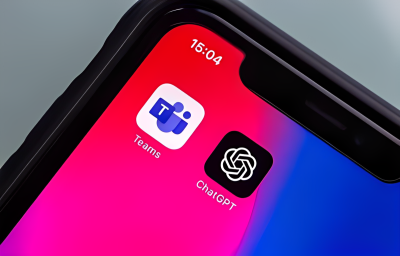Highlights:
- Perplexity AI, which has developed an AI-powered search engine platform, competes with both Google Search and OpenAI’s ChatGPT.
- Despite the competition, Perplexity has performed well, with its search app having been downloaded over 2 million times so far.
Perplexity AI Inc., a startup specializing in generative artificial intelligence search, is reportedly nearing the completion of a massive new funding round. Perplexity AI’s funding round could increase its valuation to USD 9 billion.
The startup, which has developed an AI-driven search engine platform and competes with Google Search and OpenAI’s ChatGPT, is expected to raise USD 500 million in the funding round. San Francisco-based venture capital firm Institutional Venture Partners is leading the round, according to reports from the Wall Street Journal and CNBC, both citing anonymous sources.
The funding round would position Perplexity as one of the world’s most valuable generative AI startups. At the start of the year, the company was valued at just USD 520 million, but multiple funding rounds pushed that figure to USD 3 billion by the end of June. In total, Perplexity has announced four funding rounds this year alone.
Perplexity continues to draw increased investor interest, even as its competitors ramp up their efforts to challenge it. Just last week, OpenAI introduced a new search feature for ChatGPT, its popular chatbot, while both Google Search and Microsoft’s Bing have integrated AI functionalities. ChatGPT’s search feature offers real-time updates on sports scores, stock prices, news, weather, and more, leveraging its internet search capabilities and partnerships OpenAI has established with various publishers and data providers.
Despite growing competition, Perplexity has performed well, with its search app being downloaded over 2 million times to date. In August, the company reported processing around 230 million search queries per month. Additionally, the Journal recently reported that Perplexity’s annualized revenue is approximately USD 50 million.
Similar to Google, Perplexity’s AI engine scours the web for the latest information, but instead of generating a list of links, it responds to user queries in a style more comparable to ChatGPT.
Perplexity’s tools are free to use, but the company generates revenue by offering premium subscriptions that provide access to more advanced features. In addition to serving consumers, it has introduced an enterprise-grade version of its search engine for businesses, which can search internal company files to answer business-specific questions.
The company has plans to incorporate advertising into its platform, though it has not yet implemented this feature.
Perplexity has faced some controversy as it has grown, with several media outlets accusing its search engine of effectively plagiarizing their content when generating responses. In September, the New York Times reportedly sent Perplexity a cease-and-desist letter, demanding that it stop crawling its web pages and using their content for answers. The Times claims Perplexity is merely scraping its articles, a charge the startup denies.
Other websites, including Forbes and Wired.com, have also accused Perplexity of plagiarism. Dow Jones, the parent company of The Journal, has taken it a step further by filing a lawsuit against Perplexity over its practices.
In response to the controversy, Perplexity has offered a solution in the form of a revenue-sharing model for publishers. The company is inviting media outlets to join the program, promising to share a portion of any ad revenue generated from responses that cite their articles.
The initiative seems to have gained approval from several publishers, with notable names such as Fortune, Time, Entrepreneur, The Texas Tribune, Der Spiegel, and WordPress all joining the program.
For publishers, the program could be quite profitable. In an interview, Perplexity’s Chief Business Officer, Dmitry Shevelenko, explained that if one of its answers references three different articles from the same publisher, that partner would receive “triple the revenue share” compared to when only one link is used.













